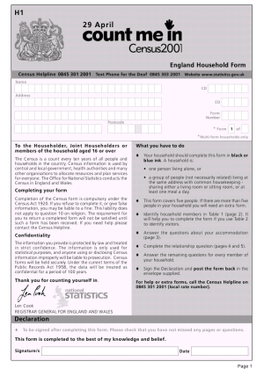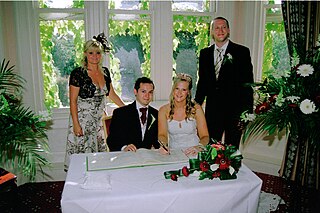
The politics of the United Kingdom functions within a constitutional monarchy where executive power is delegated by legislation and social conventions to a unitary parliamentary democracy. From this a hereditary monarch, currently Charles III, serves as head of state while the Prime Minister of the United Kingdom, currently Rishi Sunak, serves as the elected head of government.
A university constituency is a constituency, used in elections to a legislature, that represents the members of one or more universities rather than residents of a geographical area. These may or may not involve plural voting, in which voters are eligible to vote in or as part of this entity and their home area's geographical constituency.

The politics of Scotland operate within the constitution of the United Kingdom, of which Scotland is a country. Scotland is a democracy, being represented in both the Scottish Parliament and the Parliament of the United Kingdom since the Scotland Act 1998. Most executive power is exercised by the Scottish Government, led by the First Minister of Scotland, the head of government in a multi-party system. The judiciary of Scotland, dealing with Scots law, is independent of the legislature and the Scottish Government. Scots law is primarily determined by the Scottish Parliament. The Scottish Government shares some executive powers with the Government of the United Kingdom's Scotland Office, a British government department led by the Secretary of State for Scotland.

The Civil Partnership Act 2004 is an Act of the Parliament of the United Kingdom, introduced by the Labour government, which grants civil partnerships in the United Kingdom the rights and responsibilities very similar to those in civil marriage. Initially the Act permitted only same-sex couples to form civil partnerships. This was altered to include opposite-sex couples in 2019. Civil partners are entitled to the same property rights as married couples, the same exemption as married couples regarding social security and pension benefits, and also the ability to exercise parental responsibility for a partner's children, as well as responsibility for reasonable maintenance of one's partner and their children, tenancy rights, full life insurance recognition, next-of-kin rights in hospitals, and others. There is a formal process for dissolving civil partnerships, akin to divorce.

A post-legislative referendum was held in Scotland in 1979 to decide whether there was a sufficient support for a Scottish Assembly proposed in the Scotland Act 1978 among the Scottish electorate. This was an act to create a devolved deliberative assembly for Scotland. A majority (51.6%) of voters supported the proposal, but an amendment to the Act stipulated that it would be repealed if less than 40% of the total electorate voted in favour. As there was a turnout of 64% the "Yes" vote represented only 32.9% of the registered electorate, and the act was subsequently repealed.

The Political Parties, Elections and Referendums Act 2000 is an Act of Parliament of the United Kingdom that sets out how political parties, elections and referendums are to be regulated in the United Kingdom. It formed an important part of the constitutional reform programme implemented by the 1997 Labour Government, building on the Registration of Political Parties Act 1998 which was passed two years earlier.
Civil partnership in the United Kingdom is a form of civil union between couples open to both same-sex couples and opposite-sex couples. It was introduced via the Civil Partnership Act 2004 by the Labour government. The Act initially permitted only same-sex couples to form civil partnerships, but the law was expanded to include opposite-sex couples in 2019.
Companies House is the executive agency of the British Government that maintains the register of companies, employs the company registrars and is responsible for incorporating all forms of companies in the United Kingdom.

The General Register Office for England and Wales (GRO) is the section of the United Kingdom HM Passport Office responsible for the civil registration of births, adoptions, marriages, civil partnerships and deaths in England and Wales and for those same events outside the UK if they involve a UK citizen and qualify to be registered in various miscellaneous registers. With a small number of historic exceptions involving military personnel, it does not deal with records of such events occurring within the land or territorial waters of Scotland, Northern Ireland or the Republic of Ireland; those entities' registration systems have always been separate from England and Wales.
An electoral roll is a compilation that lists persons who are entitled to vote for particular elections in a particular jurisdiction. The list is usually broken down by electoral districts, and is primarily prepared to assist election officials at polling places. Most jurisdictions maintain permanent electoral rolls, which are updated continuously or periodically, while some jurisdictions compile new electoral rolls before each election. Electoral rolls are the result of a process of voter registration. In most jurisdictions, voter registration is a prerequisite for voting at an election. Some jurisdictions do not require voter registration, and do not use electoral rolls, such as the state of North Dakota in the United States. In those jurisdictions a voter must provide identification and proof of entitlement to vote before being permitted to vote.
Civil registration is the system by which a government records the vital events of its citizens and residents. The resulting repository or database has different names in different countries and even in different subnational jurisdictions. It can be called a civil registry, civil register, vital records, and other terms, and the office responsible for receiving the registrations can be called a bureau of vital statistics, registry of vital records and statistics, registrar, registry, register, registry office, or population registry. The primary purpose of civil registration is to create a legal document that can be used to establish and protect the rights of individuals. A secondary purpose is to create a data source for the compilation of vital statistics.

Coincident full censuses have taken place in the different jurisdictions of the United Kingdom every ten years since 1801, with the exceptions of 1941, Ireland in 1921/Northern Ireland in 1931, and Scotland in 2021. In addition to providing detailed information about national demographics, the results of the census play an important part in the calculation of resource allocation to regional and local service providers by the UK government.

General Register Office or General Registry Office (GRO) is the name given to the civil registry in the United Kingdom, many other Commonwealth nations and Ireland. The GRO is the government agency responsible for the recording of vital records such as births, deaths, and marriages, which may also include adoptions, stillbirths, civil unions, etc., and historically, sometimes included records relating to deeds and other property transactions.

The United Kingdom Census of 1841 recorded the occupants of every United Kingdom household on the night of Sunday 6 June 1841. The enactment of the Population Act 1840 meant a new procedure was adopted for taking the 1841 census. It was described as the "first modern census" as it was the first to record information about every member of the household, and administered as a single event, under central control, rather than being devolved to a local level. It formed the model for all subsequent UK censuses, although each went on to refine and expand the questions asked of householders.
Electors must be on the electoral register in order to vote in elections and referendums in the UK. Electoral registration officers within local authorities have a duty to compile and maintain accurate electoral registers.

The National Registration Act 1939 was an Act of Parliament in the United Kingdom. The initial National Registration Bill was introduced to Parliament as an emergency measure at the start of the Second World War.

There are five types of elections in the United Kingdom: elections to the House of Commons of the United Kingdom, elections to devolved parliaments and assemblies, local elections, mayoral elections, and police and crime commissioner elections. Within each of those categories, there may also be by-elections. Elections are held on Election Day, which is conventionally a Thursday, and under the provisions of the Dissolution and Calling of Parliament Act 2022 the timing of general elections can be held at the discretion of the prime minister during any five-year period. All other types of elections are held after fixed periods, though early elections to the devolved assemblies and parliaments can occur in certain situations. The five electoral systems used are: the single member plurality system (first-past-the-post), the multi-member plurality, the single transferable vote, the additional member system, and the supplementary vote.
National Records of Scotland is a non-ministerial department of the Scottish Government. It is responsible for civil registration, the census in Scotland, demography and statistics, family history, as well as the national archives and historical records.

The Places of Worship Registration Act 1855 is an Act of the Parliament of the United Kingdom which governs the registration and legal recognition of places of worship. It applies only in England and Wales, and does not cover the Church of England which is exempt from the Act's requirements. Nor does it affect the Church in Wales, which remains part of the Anglican Communion although it is no longer the Established Church in Wales. Registration is not compulsory, but it gives certain financial advantages and is also required before a place of worship can be registered as a venue for marriages.

A civil, or registrar, ceremony is a non-religious legal marriage ceremony performed by a government official or functionary. In the United Kingdom, this person is typically called a registrar. In the United States, civil ceremonies may be performed by town, city, or county clerks, judges or justices of the peace, or others possessing the legal authority to support the marriage as the wedding officiant.











